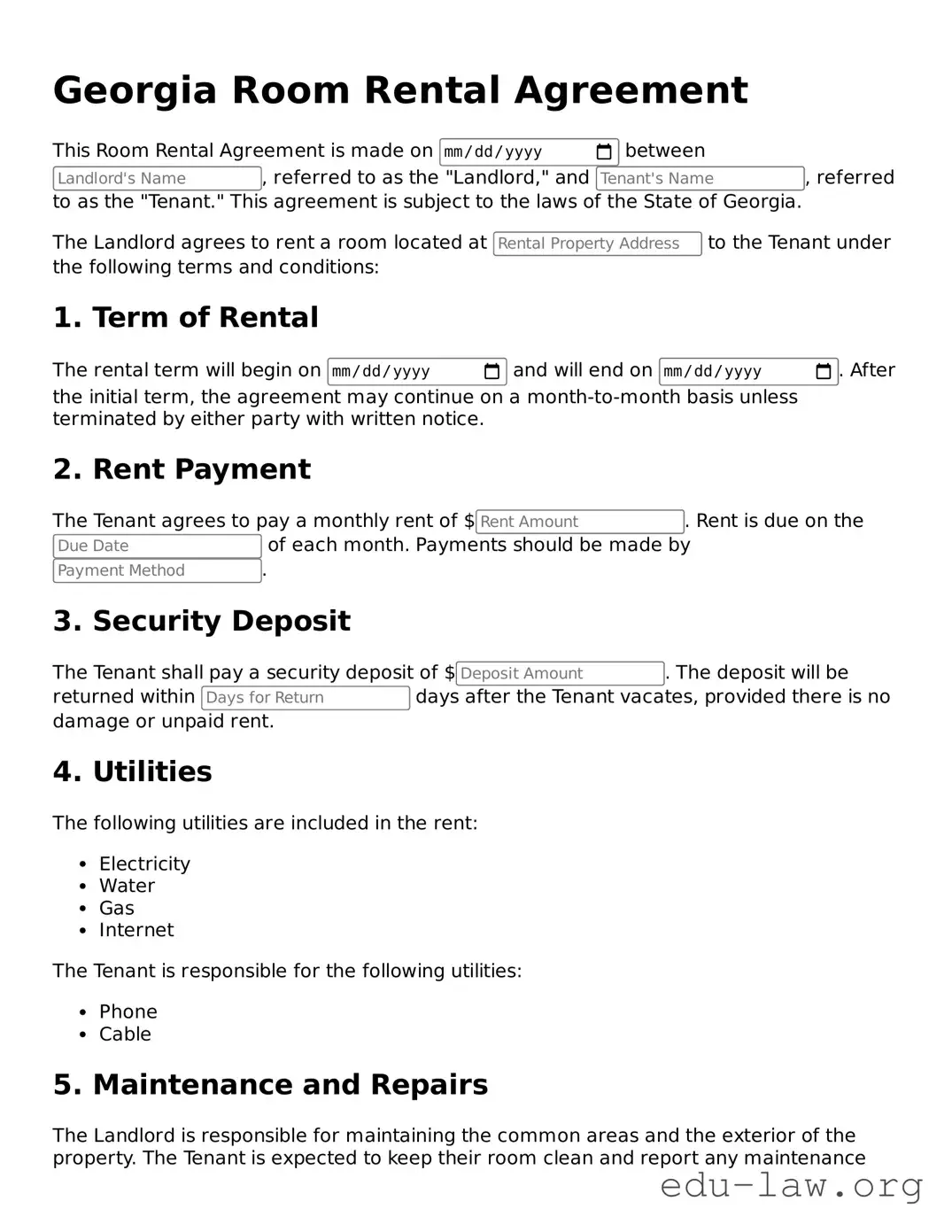Legal Room Rental Agreement Template for Georgia
The Georgia Room Rental Agreement form serves as a legal document outlining the terms and conditions under which a room is rented to an occupant. This agreement protects the rights of both the landlord and the tenant by clearly stating expectations and responsibilities. Understanding this form is essential for anyone involved in renting or leasing a property in Georgia.
